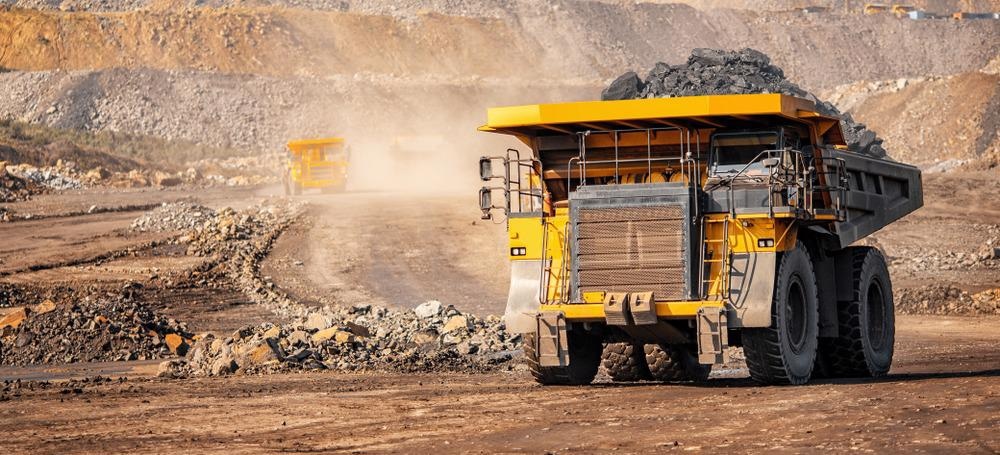Protecting the environment is becoming an increasingly important goal for all industries. The mining industry, which produces 1.9–5.1 gigatons of carbon dioxide each year, is particularly under pressure to rethink its processes to make them more environmentally friendly due to the extent of the damage it causes.

Image Credit: Parilov/Shutterstock.com
The implementation of green fleet systems is one strategy that is proving useful in helping companies to reduce their carbon footprint. A green fleet is a fleet of any kind of vehicle that is engineered to reduce its greenhouse gas emissions.
Green fleets reduce operation carbon footprints by minimizing the carbon emissions relating to vehicle use. Most industries require vehicle use in one way or another, whether as part of their processes or as part of logistics and transportation of goods. The mining industry relies heavily on the use of vehicles as part of its mining operations and to transport goods.
Now, green fleets and green fleet management systems are being increasingly introduced into the mining sector to help it reduce its contribution to global greenhouse gases. Here, we discuss how the technology is being used in the industry, what recent developments there have been, and how this technology might help the moving industry evolve in the future.
Efficient Driving and Route Optimization
Geotab, a leading company in the IoT (internet of things) and connected vehicles, offers a green automotive fleet management system that helps mining companies reduce their emissions by reducing time spent idle, increasing driving efficiency, automatically optimizing driving routes, and encouraging proactive vehicle maintenance.
Green fleet management systems highlight environmentally harmful driving activities such as speeding or harsh acceleration and feeding back this information to the driver to help them to adopt driving styles that burn fuel more efficiently. The system alerts drivers and managers to time spent idle, one of the biggest contributors to carbon emissions.
Geotab’s system also automatically optimizes routes, reducing the amount of fuel burned by making journeys as fuel-efficient as possible. The green fleet management system also eliminates some common contributors of fuel waste, such as those related to poor vehicle maintenance, by keeping diagnostics records and histories of vehicle maintenance to allow managers to optimize their maintenance plans.
Prioritizing Green Vehicles
Other systems, such as that from Azuga, offer similar telematics technology that assists with similar functionality such as encouraging better driving behaviors and optimizing routes.
However, Azuga also focuses on the likely scenario where an operation may not be in the position to replace all their vehicles with clean vehicles, such as electric vehicles.
In some cases, green fleets may be made up of a combination of vehicles. Green automotive fleet management systems can help companies prioritize the use of their cleaner vehicles to enhance the carbon footprint-reducing power of their fleet.
Green Fleet Management and Adhering to New Regulations
The Paris Agreement, signed in 2015, set the ambitious but necessary goal of achieving global carbon neutrality by 2050.
To reach this goal, governments worldwide have established their own goals and strategies to reduce their country’s carbon emissions.
New rules and regulations are being put in place to ensure that these goals are met. In the US, for example, there is a federal aim to ensure that electric vehicles account for 50% of sales of new vehicles by 2030. Individual states have their own targets, many of which are more ambitious.
It is likely that green fleet management systems will help companies adhere to new regulations. Such systems help managers set goals and keep track of their emission-contributing activities. It is the responsibility of each company to stay informed on new regulations, as well as the fuel efficiency and carbon emissions emitted from the vehicles in the fleets they hold. Green fleet management systems can act as an important tool in monitoring the activity of the fleet, to help companies track the progress of their personal goals.
As regulations change, companies can align their own goals and use their management systems to help them track these.
Future Directions
Green fleet management systems will likely become more commonplace across industries, but particularly in those that contribute a significant proportion of global carbon emission and heavy reliance on vehicle use, such as mining.
As the IoT becomes more widespread and innovations in technology grow, the capabilities of green fleet management systems will likely develop. While there are no specific projects underway developing green fleet management technology, it is likely that developments will occur following innovation in related fields such as the IoT and sensor technology.
In the coming years, we will likely see the capabilities of green fleet management systems expand so that they can be more efficient in helping mining companies to reduce their carbon footprint.
References and Further Reading
António Guterres. (2020). Carbon neutrality by 2050: the world’s most urgent mission. United Nations. [Online] Available at: https://www.un.org/sg/en/content/sg/articles/2020-12-11/carbon-neutrality-2050-the-world’s-most-urgent-mission (Accessed April 2022).
Joanne Tucker. (2021). Six ways telematics supports green fleet management. [Online] Geotab. Available at: https://www.geotab.com/uk/blog/green-fleet-management/ (Accessed April 2022).
Stasko, T. and Oliver Gao, H., 2012. Developing green fleet management strategies: Repair/retrofit/replacement decisions under environmental regulation. Transportation Research Part A: Policy and Practice, 46(8), pp.1216-1226. https://www.researchgate.net/publication
(2020). What is a Green Fleet? [Online] Azuga. Available at: https://www.azuga.com/blog/what-is-a-green-fleet (Accessed April 2022).
Disclaimer: The views expressed here are those of the author expressed in their private capacity and do not necessarily represent the views of AZoM.com Limited T/A AZoNetwork the owner and operator of this website. This disclaimer forms part of the Terms and conditions of use of this website.